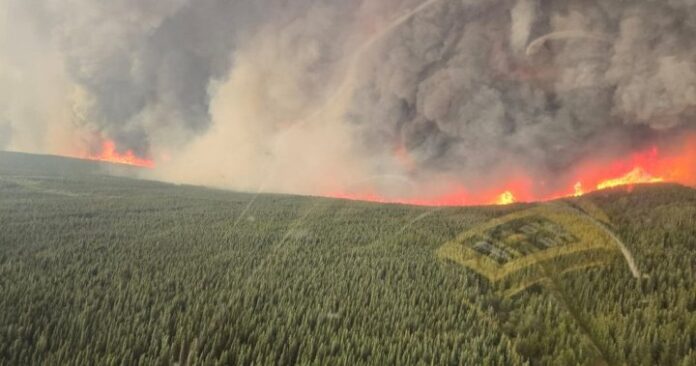While the smoky greenhouse gas emissions get most of the attention, new research from the University of British Columbia suggests wildfires may be producing several other troubling environmental impacts.
Research by the Institute for the Oceans and Fisheries raised concerns that runoff from wildfire zones could both be harming water quality and ecosystems and be speeding up the process of climate change.
In one recent study, professor Brian Hunt and research scientist Emily Brown focused on the Fraser River, combing through 20 years of historical wildfire and water data.
They concluded that more than 16 per cent in the variation of water quality could be linked to fires.
“We saw that wildfires lead to increases in the concentrations in metals and nutrients, including things like lead, copper and nitrogen, which could eventually lead to downstream negative effects on river and ocean ecosystems including impacting fish and shellfish and the aquatic ecosystems overall,” Brown said.

Wildfires are a natural part of the province’s environment, Brown said, meaning the presence of such materials shouldn’t necessarily ring alarm bells.

Get breaking National news
For news impacting Canada and around the world, sign up for breaking news alerts delivered directly to you when they happen.
But she said with climate change increasing the frequency and intensity of the fires B.C. sees, there is room for concern.
High concentrations of metals can end up in fish and shellfish, both harming them and causing potential health hazards for humans that eat them. High concentrations of nutrients can cause algae to bloom, potentially sucking oxygen from the water and releasing toxins.
“So the concern is more that if this continues to happen, then we can see negative impacts,” she said.
Also troubling is the potential for wildfire-tainted runoff to reinforce the cycle of climate change itself.
That finding, published in another recent study, revolves around “black carbon,” a material of tightly-clustered carbon atoms that forms when carbon that is in trees or vegetation is burned.

Because those tightly packed molecules are hard to break down, scientists believe they could help sequester carbon, keeping it out of the atmosphere, Brown explained.
“But what our research is showing is that as the climate is changing and the Fraser River is changing from being more snow-driven to maybe a bit more driven by rain, we could be seeing smaller particles of black carbon entering the ocean and ones that are easier to break down,” she said.
“And that could reduce the ability of black-carbon to sequester carbon from the atmosphere, and it could be broken down when it enters the ocean more quickly and then released back as carbon dioxide.”
Brown said the research is another reminder of the importance of local action, like respecting fire bans, and broader climate action.
She said it also points to the importance of prescribed and cultural burning, which can help ensure the province’s forests are more resilient to wildfires.
© 2025 Global News, a division of Corus Entertainment Inc.



